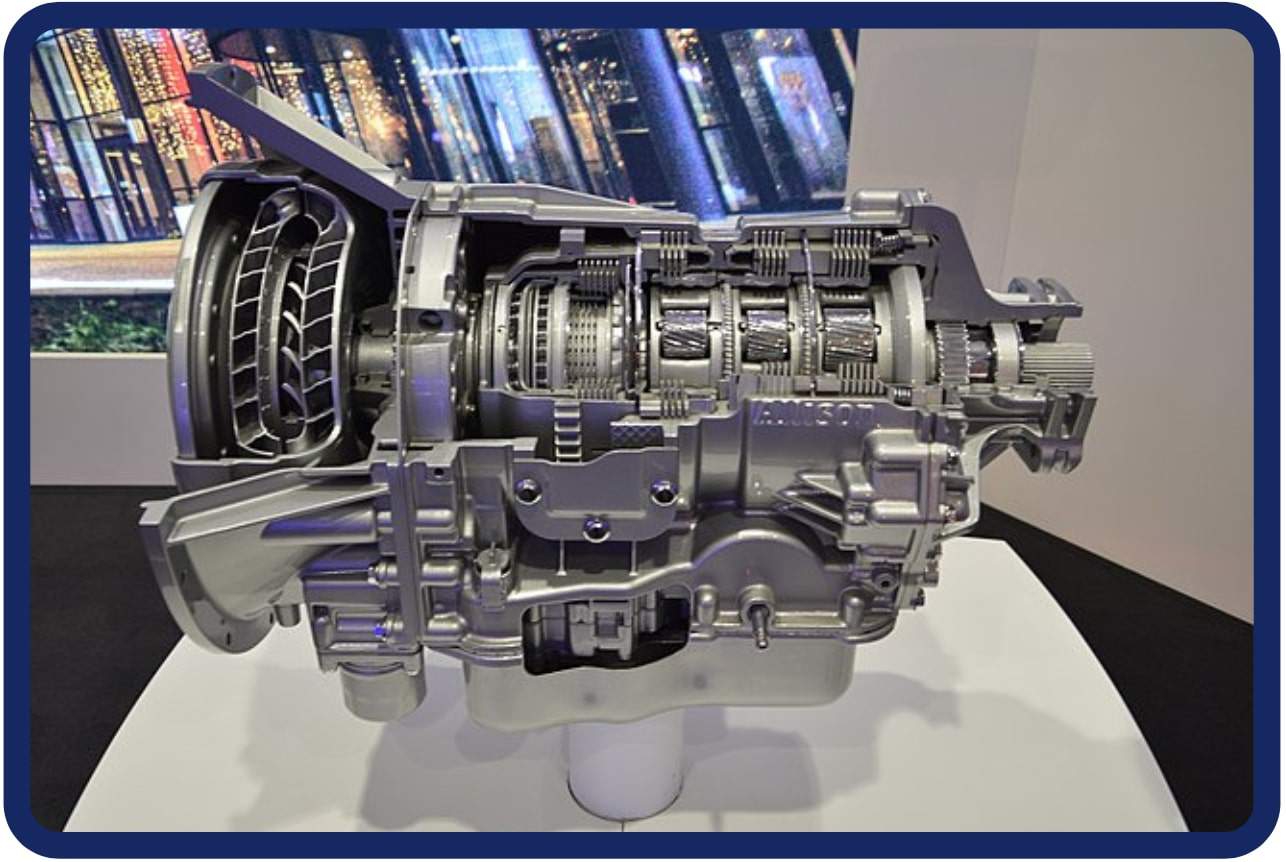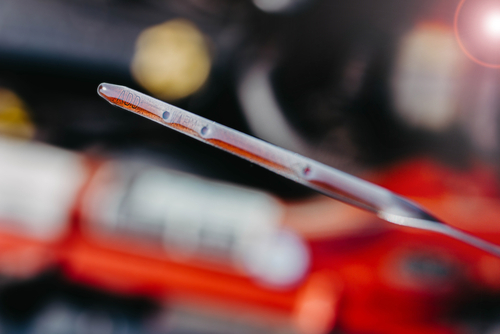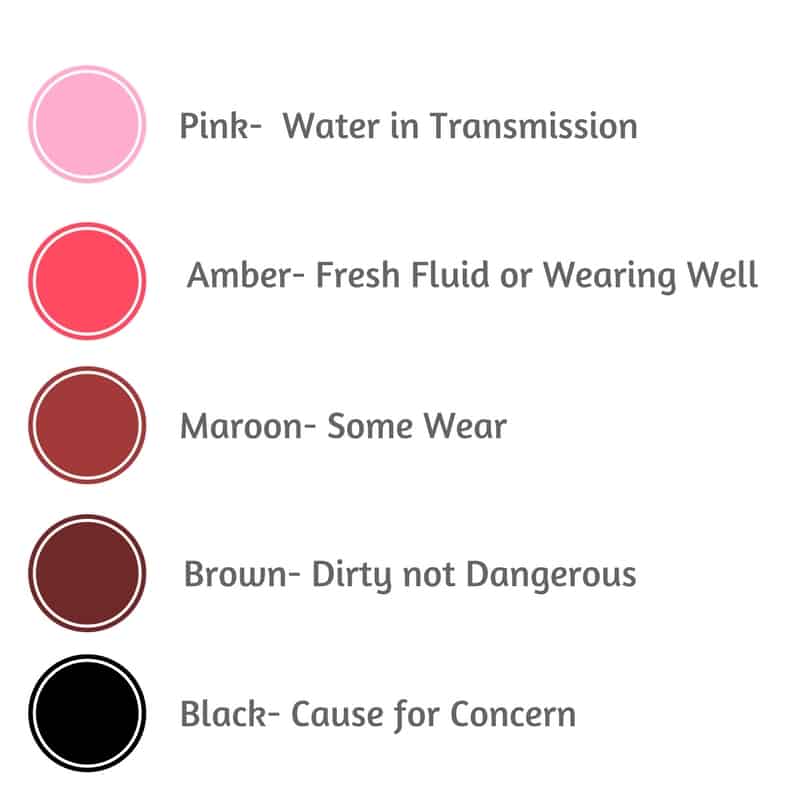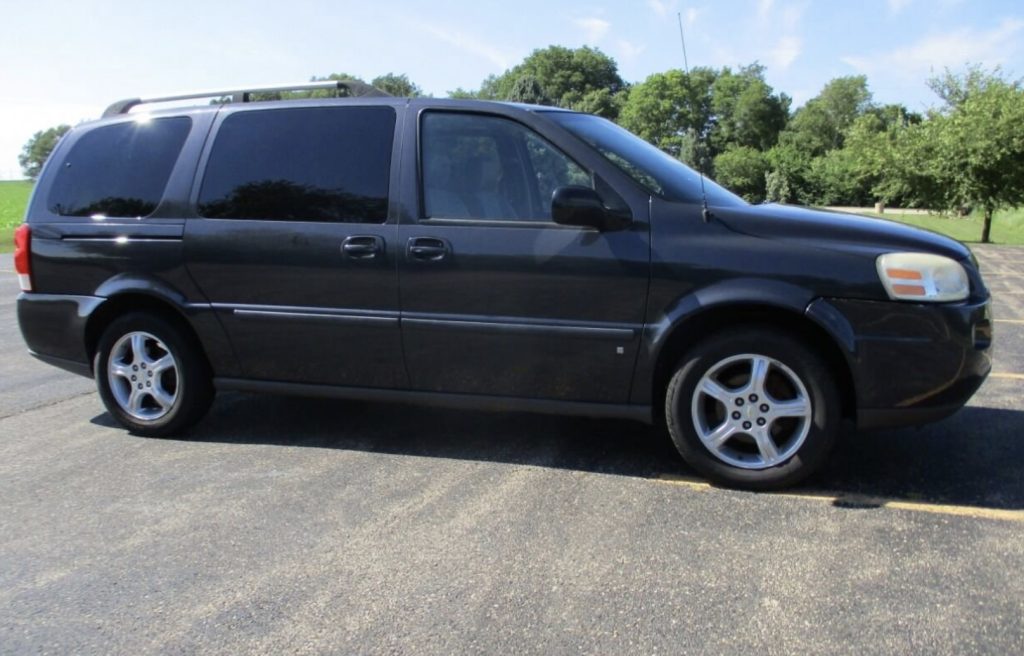
Are you worried about your Chevy Uplander’s transmission slipping? Transmission slipping can be a serious problem, potentially leaving your Uplander inoperable if not addressed promptly. It’s crucial to understand what’s causing this issue and how to diagnose and fix it before it escalates into lasting damage.
Various factors can contribute to your van’s transmission slipping, including lack of regular maintenance, a faulty transmission control module, a worn-out clutch or pressure plate, and low fluid level.
Key Takeaways
- Check your Uplander’s transmission fluid immediately
- Automatic transmission slipping is a common concern, and will occur in every transmission if you put enough miles on it.
- Causes of transmission slipping can stem from improper maintenance, a faulty transmission control module, or worn-out clutches
- Diagnosing and fixing transmission slipping early on is crucial to prevent lasting damage to your Uplander
Understanding Transmission Slipping

Transmission slipping is a serious issue that requires prompt attention. If left unchecked, the problem may escalate, causing lasting damage to your Chevy Uplander. Let’s dive into the signs and symptoms to help you identify if your vehicle’s transmission is slipping.
Signs and Symptoms
- Delayed engagement: One of the most common symptoms of transmission slipping is delayed engagement. When you shift from park to drive, if there’s a noticeable delay before your vehicle starts moving, this could be an indication of transmission slipping. Keep an eye out for any unexplained pauses during gear transitions.
- Higher RPMs without acceleration: If you notice that your Uplander’s RPM increases significantly without a corresponding increase in speed, there’s a chance your transmission is slipping. Watch out for a disconnection between the engine’s performance and your vehicle’s actual speed.
- Unusual noises: Whenever you hear unusual noises from your Uplander, it’s essential to pay attention. Sounds like whining or humming can indicate transmission problems, especially if they’re accompanied by other performance issues like slipping gears or delayed engagement.
- Burning odor: A burnt smell coming from your vehicle could signify transmission trouble, often caused by overheating or low transmission fluid levels. If you detect such an odor, it’s vital to have it checked by a professional as soon as possible.
Causes of Transmission Slipping in the Chevy Uplander
Low Transmission Fluid

One common reason for your Chevy Uplander’s transmission to slip is due to low automatic transmission fluid. It’s best to start your diagnosis with the ATF. Transmission fluid is essential in lubricating the transmission parts and maintaining the proper pressure for smooth gear engagement.
If your fluid levels are too low, the pressure required to engage gears correctly decreases, resulting in slipping. To avoid this, make sure to regularly check your Uplander’s transmission fluid and add more if necessary. A little attention now can save you a whole lot of trouble later.
Worn Clutches
Another culprit for transmission slipping in your Chevy Uplander could be worn clutches. Over time, everyday wear and tear can cause the clutch plates to lose their grip, making it difficult for them to hold the gears properly.
Faulty Solenoids
Faulty solenoids may also be the reason why your Uplander’s transmission is slipping. Solenoids are responsible for controlling the flow of transmission fluid inside the valve body, and if they malfunction, the fluid flow may be disrupted, which interferes with gear engagement.
However, solenoids are little tricksters, so they might make your transmission slip even when there’s no major issue with other parts. When in doubt, it’s always a good idea to consult a trusted mechanic who can diagnose and fix solenoid-related issues to keep your Uplander running in tip-top shape.
How to Diagnose and Fix Transmission Slipping
Checking Transmission Fluid

First things first, let’s check your Chevy Uplander’s transmission fluid. Low or no transmission fluid is one of the most common reasons for a slipping transmission. Fear not, this is an easy fix. To check the fluid level, follow these steps:
- Park your Uplander on a level surface and apply the parking brake.
- Start the engine and allow it to reach operating temperature.
- Shift the transmission through all the gears, then back to Park or Neutral.
- Locate the transmission dipstick – it might be hiding near the firewall.
- Remove the dipstick, wipe it clean, and reinsert it fully.
- Pull it out again and check the fluid level. It should be within the marked range.
Replacing Worn Components
So the fluid level is all good, but your transmission is still slipping? It’s time to inspect and replace any worn components causing this pesky problem.
This is best left to a professional. Automatic transmissions are more complicated than an engine. Common culprits include:
- Transmission bands: In automatic Uplanders, bands apply pressure to the clutches and gears, helping them engage correctly. Worn bands can cause slipping and need to be adjusted or replaced by a skilled mechanic.
- Torque converter: This bad boy transfers the engine’s power to the transmission. A faulty torque converter can cause slipping and poor performance. Get your mechanic to check the torque converter and replace it if necessary.
After addressing the worn components, your Uplander should shift like a dream. If, however, the slipping persists, don’t panic. Visit a trusted mechanic for a more thorough diagnosis and repair. Remember, knowledge is power – and in this case, a smooth-shifting Uplander!
Preventing Chevy Uplander Transmission Slipping

Regular Maintenance
To prevent transmission slipping in your Chevy Uplander, it’s essential to practice regular maintenance. This includes:
- Checking the transmission fluid: Make it a habit to check your transmission fluid levels regularly, as low fluid levels can lead to slipping. Ensure that the fluid is bright red and does not have a burnt odor. If it appears dark or smells burnt, have it replaced.
- Fluid change: Follow the manufacturer’s recommendations for transmission fluid change intervals, typically every 30,000-60,000 miles. This helps keep the fluid clean and free of debris, reducing the chances of slipping and other issues.
- Transmission inspections: Schedule regular transmission inspections with a professional mechanic who can diagnose any potential problems and provide necessary repairs.
Driving Habits
In addition to proper maintenance, adjusting your driving habits can also prevent transmission slipping and prolong the life of your Chevy Uplander’s transmission. Keep the following tips in mind:
- Avoid rapid acceleration: Gently accelerate from a stop and avoid any sudden bursts of speed, as this can put unnecessary stress on your transmission.
- Shift smoothly: When shifting between gears, whether it’s an automatic or manual transmission, do so smoothly and avoid abruptly changing gears when possible. Just try to avoid driving it yourself or in “sport mode” if your Uplander has that option.
- Limit towing: If you tow heavy loads with your Uplander, be aware of the strain it places on your transmission. Avoid towing consistently and ensure you are following proper towing guidelines.
By maintaining your Chevy Uplander’s transmission through regular checkups, fluid changes, and mindful driving habits, you can significantly reduce the chances of experiencing transmission slipping. Remember, taking care of your van will keep it running smoothly for the long haul.
Conclusion
In dealing with Chevy Uplander transmission slipping, it’s essential to first look at the most common causes. For instance, low or no transmission fluid is often a leading cause of transmission slipping.
Make it a habit to routinely check your transmission fluid levels to ensure smooth operation and avoid potential issues down the road.
If you’re experiencing hard shifting, it’s essential to tackle the issue head-on, as prolonged driving with a problematic transmission can lead to more significant and potentially expensive problems. Eventually, your Uplander may not shift gears at all.
Don’t hesitate to consult with a trusted dealership or mechanic for proper diagnosis and repair.
Now that you’re equipped with the knowledge of what causes transmission slipping and how to address it, you can feel more confident and informed in handling any transmission-related issues that may arise in your Chevy Uplander.
Frequently Asked Questions
What are common causes of Uplander transmission slipping?
Low or no transmission fluid is one of the most common reasons for a transmission slipping in your Chevy Uplander. Transmission fluid lasts much longer than oil, so it’s easy to overlook. However, when it gets critically low, the transmission will begin slipping as it’s no longer able to transfer the engine’s power to the rear wheels.
Another reason for slipping might be that your van has experienced faulty mechanical components within the transmission. It’s also possible that there are issues with the transmission control module, which can impair the proper gear selection.
How can I fix transmission slipping in my Chevy Uplander?
The first thing you should do when experiencing transmission slipping is to check your fluid levels. To do this, locate the transmission dipstick, pull it out, wipe it clean, reinsert it, and then pull it out again to examine the fluid level. If it’s low, add the appropriate transmission fluid as specified by your owner’s manual.
If transmission fluid levels are within the proper range and slipping persists, it’s essential to visit a professional mechanic for a thorough diagnosis. They might need to replace faulty components within the transmission or check the transmission control module for any issues. Remember that preventative maintenance and addressing issues promptly can save you from costly repairs and extend the life of your Uplander.

